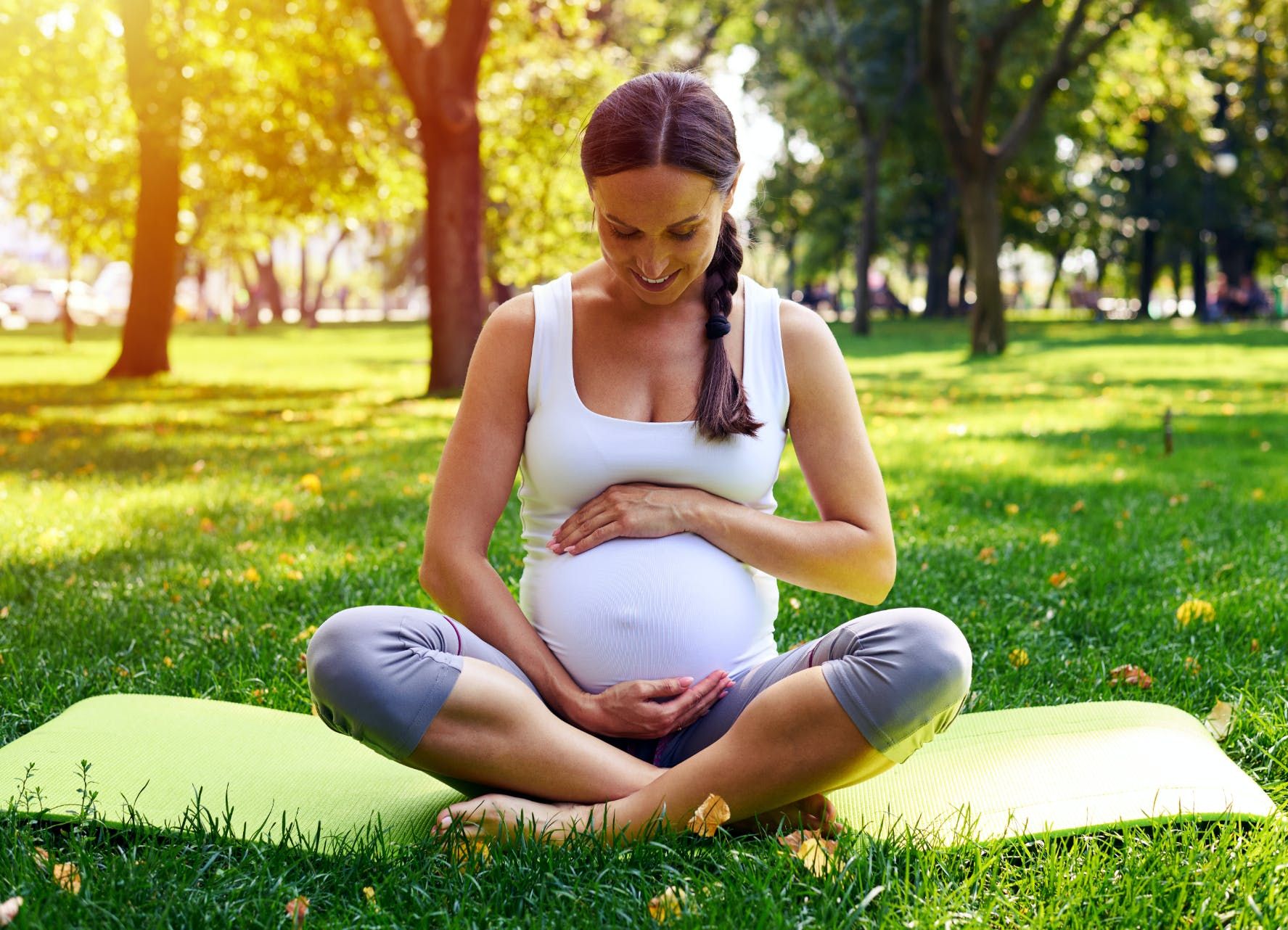Cannabidiol (CBD) has well-documented benefits for many health conditions. Research shows that this calming cannabinoid works with the body’s natural system of endocannabinoid receptors to relieve pain, ease anxiety, improve digestion and more.
But is it safe to consume CBD while you’re pregnant?
FOLLOW US ON FACEBOOK & INSTAGRAM
Some pregnancy and parenting resources say CBD is a safe and natural way to relieve the discomforts of pregnancy without the risks and side effects of prescription or over-the-counter medications.
RELATED: USING CBD TO HELP EASE DIGESTIVE ISSUES
But research on the effects of CBD during pregnancy is limited, and scientists can’t say for sure how it may affect a developing fetus. Because the long-term effects of taking CBD in pregnancy aren’t known, many doctors recommend avoiding it altogether, except in rare instances where the benefits clearly outweigh the risks.
What We Know About Consuming THC During Pregnancy
Between 2000 and 2017, cannabis consumption doubled among pregnant women in the U.S., especially during the first trimester of pregnancy.
A Canadian study found that over three quarters of women surveyed took cannabis during pregnancy for symptoms like nausea, even though they were aware of warnings about potential risks to fetal health.
These statistics are raising concern among health care professionals. Current research indicates that consuming cannabis during pregnancy can affect fetal development.
Whole-plant cannabis contains tetrahydrocannabinol (THC), the psychoactive compound that causes consumers to feel high. THC also activates receptors in the body’s natural endocannabinoid receptor system (ECS). The ECS is a network of cell receptors that responds to endocannabinoids as well as cannabinoids from outside sources, mainly the cannabis plant.
The ECS also plays a key role in supporting the development of the brain and nervous system. Recent studies reveal that THC can cross the placental barrier, so prenatal exposure to THC, even in small amounts, has the potential to cause long- lasting neurological harm in a developing fetus.
This can include problems with things like:
- Learning
- Coordination
- Fine motor control
Research also indicates that consuming cannabis while pregnant can also lead to babies with low birth weight.
Advocates of cannabis consumption during pregnancy point to a study from the 1980s on a group of Jamaican children whose mothers consumed cannabis during pregnancy. At a five-year follow-up in 1991, researchers found no differences in development between these children and a control group whose mothers hadn’t consumed cannabis when they were pregnant.
But today’s cannabis is very different from the natural plant grown in rural Jamaica decades ago. Most marijuana strains are now hybrids that typically have a higher THC content than strains cultivated in earlier years.
Meanwhile, different methods of consuming cannabis can deliver varying amounts of THC and other compounds into the bloodstream. For example, when smoking cannabis, THC and other compounds reach the bloodstream directly and very quickly, but the digestive system and liver processes marijuana edibles. This is why they act much more slowly.
But because there’s so little research on cannabis consumption in pregnancy, scientists are still searching for a clear picture of the many ways in which cannabis can affect fetal development.
Because scientists don’t know how individual cannabis compounds like CBD can affect pregnancy, doctors are reluctant to green-light their use. And this is despite the fact that research on adults in general shows that these compounds are likely to be safe and beneficial.
CBD Has Many Health Benefits—But Not While You’re Pregnant
CBD doesn’t cause consumers to feel high like THC can and boasts an impressive list of health benefits.
However, CBD can have some undesirable side effects, such as gastric upsets. In general though, research has shown that it’s safe and doesn’t affect essential processes like:
- Heart rate
- Blood pressure
- Respiration
Research has also shown that CBD can:
- Support the immune system
- Reduce inflammation
- Relieve pain
- Improve appetite
- Protect neural pathways in the brain
- Keep the ECS in balance
- Relieve anxiety, depression and other symptoms of mood disorders
- Reduce symptoms of a wide variety of conditions including epilepsy and Parkinson’s disease
A number of the health problems that CBD can help with are also present during pregnancy, such as:
- Nausea
- Aches and pains
- Mood changes
This is why a number of parenting and pregnancy resources are eager to recommend CBD as a safe and effective alternative to pharmaceuticals and over-the- counter remedies. And in states where medical cannabis is legal, dispensaries may even cite cannabis as a natural remedy for morning sickness.
But medical experts maintain that with a very few rare exceptions, it’s best to avoid cannabis from all sources during pregnancy—including CBD isolates in all forms, even topicals.
HelloMD’s Chief Medical Officer, Dr. Patricia Frye, agrees. “The science is conflicting,” she says. “And until the science is conclusive, no cannabis products are recommended during pregnancy—unless the risk of low birth weight and/or neurodevelopmental adverse effects is outweighed by the benefit to the mother. And those instances are rare.”
Among the exceptional instances is a condition called hyperemesis gravidarum. This is a relatively rare but debilitating form of morning sickness that causes extreme and frequent episodes of vomiting. The condition can be so severe that the sufferer:
- Is unable to eat
- Becomes dehydrated
- Can even require hospitalization
When someone develops hyperemesis gravidarum, her baby loses essential nutrients and faces the risk of numerous other complications. Medications for hyperemesis gravidarum can have their own side effects, so CBD could be a safer alternative to relieve nausea and improve appetite.
CBD may also be appropriate for a pregnant woman with severe epilepsy or psychosis when standard medications don’t work or have even greater potential to harm a developing fetus.
But Dr. Frye emphasizes that these situations are extraordinary. “These are rare and extreme cases,” she says. “I wouldn’t be willing to take the chance unless it were something that monumental. It’s all about risk vs. benefit.”
CBD can be a largely safe and effective way to relieve the symptoms of a multitude of health problems. This is why it appeals to those looking for natural, nonmedical support during pregnancy. But without more research to show that it’s safe, doctors say it’s best to save your favorite CBD products until after your baby is born, and you’re no longer breastfeeding.
Photo credit: ArtFamily/shutterstock.com
Want to try CBD, but don’t know where to start? Shop our selection of high-quality, lab-tested CBD products and have them shipped to your door. And if you have questions about CBD, ask them and our community will answer.






